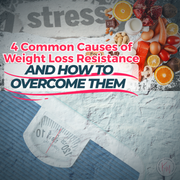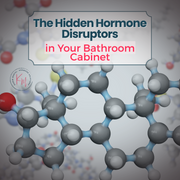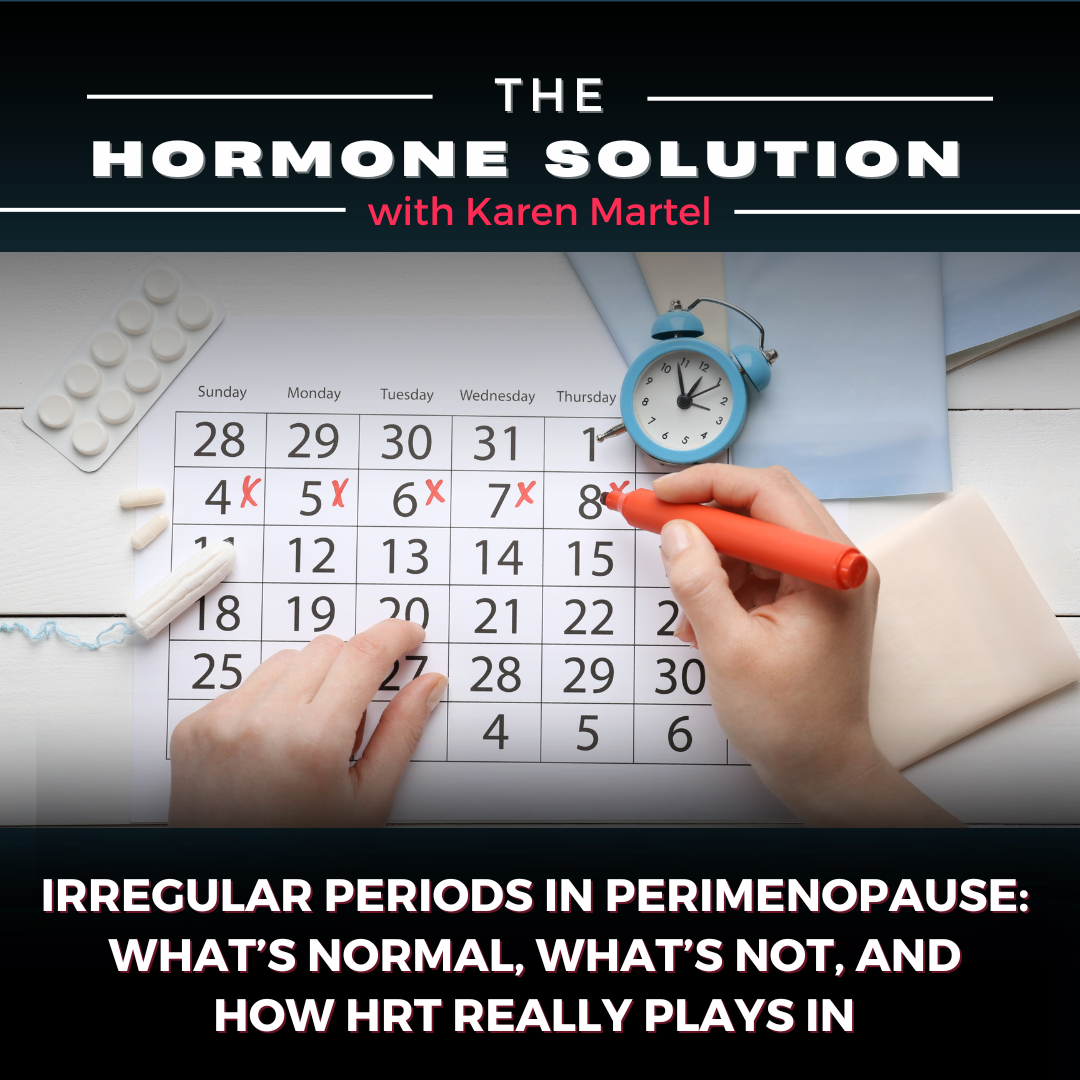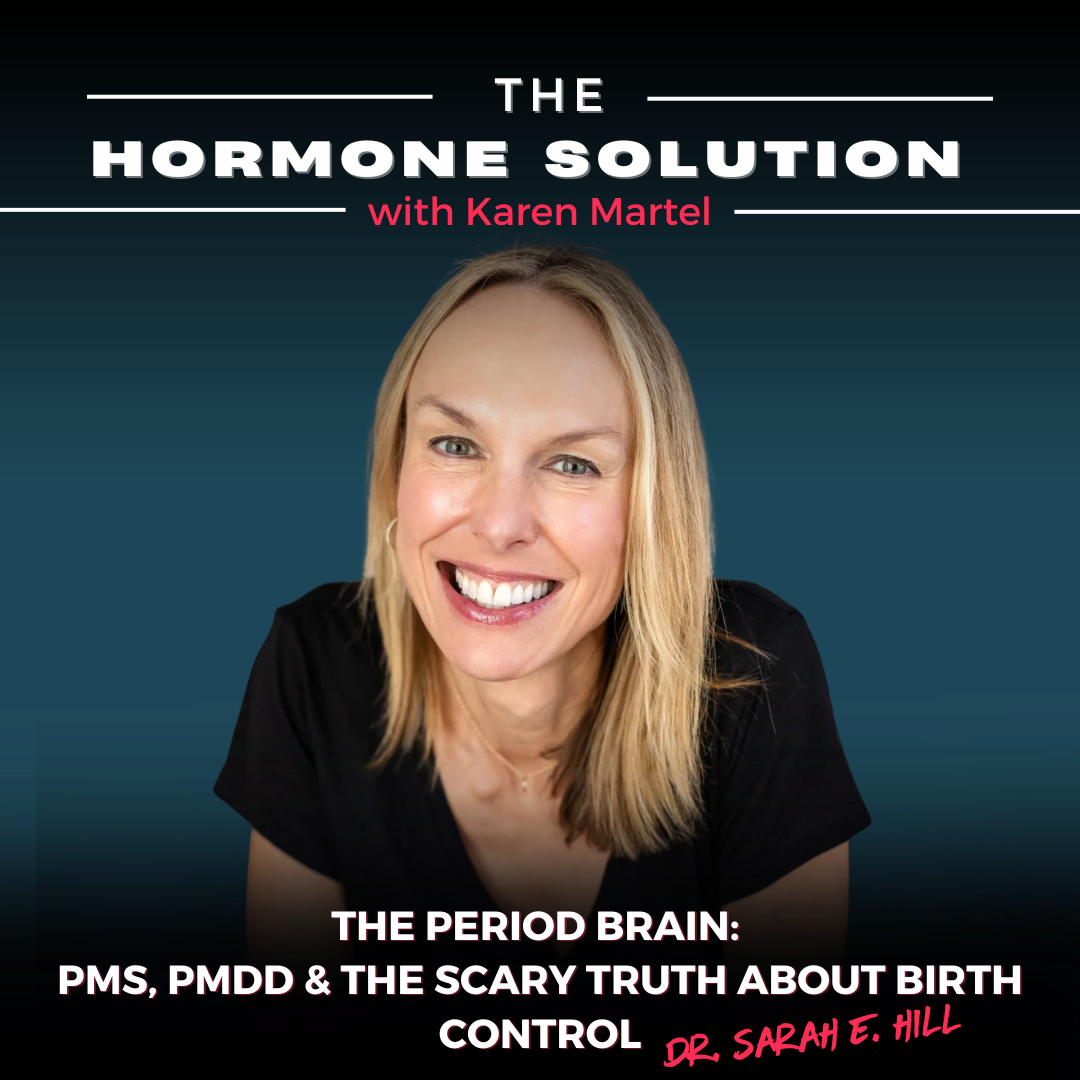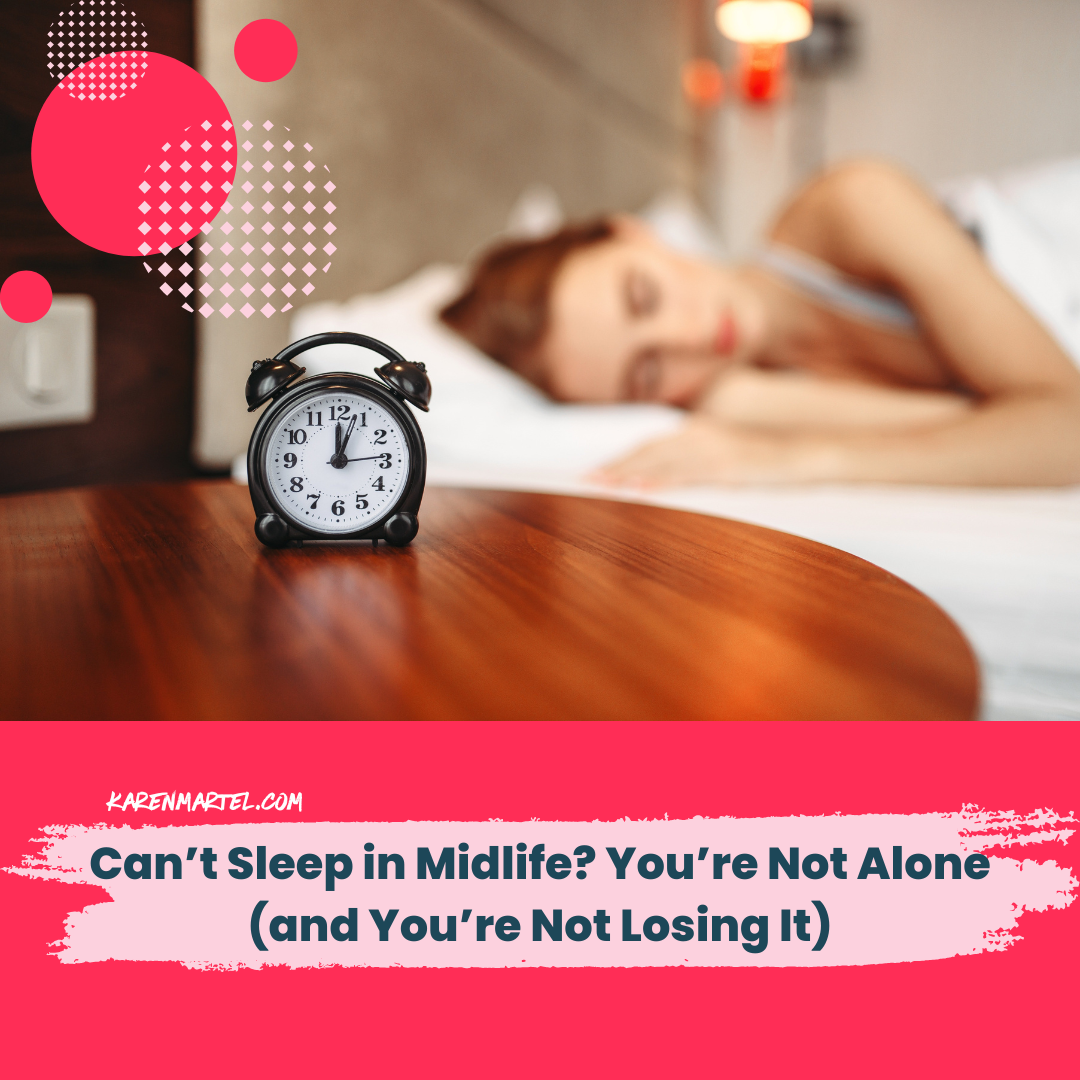
Can’t Sleep in Midlife? You’re Not Alone (and You’re Not Losing It)
Let’s talk about one of the most frustrating and under-discussed symptoms of perimenopause and menopause: crappy sleep. If you’ve suddenly found yourself wide awake at 3 a.m. for no good reason, drenched in sweat, or waking up feeling like you ran a marathon in your dreams—you’re not just “getting older,” and you’re definitely not alone. Sleep issues during this phase of life are extremely common and incredibly disruptive. So let’s break down why your sleep is suddenly acting like a toddler in a sugar coma—and more importantly, what you can do about it.
What the Heck is Happening to Your Sleep?
When estrogen and progesterone start to decline (or tank, let’s be honest), they mess with way more than just your periods and moods. These hormones actually help regulate your sleep cycles, body temperature, and even respiratory stability during sleep.
Low estrogen? You’re more likely to experience hot flashes, night sweats, and sleep apnea.
Low progesterone? Say hello to anxious thoughts, restlessness, and difficulty falling or staying asleep.
And here’s the kicker: hot flashes don’t just wake you up—waking up can actually trigger a hot flash, creating a vicious cycle of tossing, turning, sweating, and screaming into your pillow.
Toss in some midlife stress, a little anxiety, maybe a sprinkle of depression—and boom. You've got the perfect storm for insomnia.
Most Common Sleep Disruptors in Midlife
These are the top culprits keeping midlife women from getting restorative sleep:
-
Insomnia – Can’t fall asleep, can’t stay asleep, or waking up way too early? Join the club. About 1 in 4 women in midlife deal with clinical insomnia.
-
Obstructive Sleep Apnea (OSA) – Often underdiagnosed in women, especially post-menopause. If you snore, wake up choking/gasping, or feel exhausted even after “sleeping,” it’s worth checking into.
-
Restless Leg Syndrome (RLS) – That creepy-crawly urge to move your legs at night? Yep, that’s a thing, and it’s more common as estrogen drops.
What Actually Helps (Hint: It’s Not Just Melatonin)
Lifestyle First (Always)
Sometimes the basics really do make a difference. Start here:
-
Keep a consistent bedtime and wake time—even on weekends.
-
Ditch afternoon naps (sorry).
-
Create a wind-down ritual: reading, stretching, magnesium bath, journaling, red light therapy—whatever helps signal your brain it’s time to shut down.
-
Say goodbye to scrolling before bed—blue light blocks melatonin.
-
Keep your bedroom cool, dark, and tech-free.
-
Get daily sunlight and regular movement (earlier in the day is best).
-
Avoid heavy meals, caffeine, and booze at night (I know...).
Cognitive Behavioral Therapy for Insomnia (CBT-I)
This isn’t just about journaling and meditation. CBT-I is the gold standard for treating insomnia—even in menopause. It works by rewiring your thoughts and habits around sleep. You can do it with a therapist or via online programs. It’s effective, drug-free, and long-lasting.
Hormone Therapy (HT or MHT)
When sleep issues are driven by hormonal chaos (hello, hot flashes), getting your hormones back in balance is a game-changer. Estrogen and progesterone (especially oral progesterone at night) can significantly improve sleep quality. It's not a sleeping pill—it addresses the root cause.
Targeted Supplements & Therapies
-
Melatonin – Low-dose may help in some women, especially if your natural production has dropped.
-
5-HTP or L-theanine – Can calm the nervous system, especially if anxiety is in the mix.
-
Bioidentical Progesterone – Promotes deep, GABA-supported sleep.
-
Check for Sleep Apnea – If you're snoring or waking unrefreshed, talk to your doc. CPAP or oral devices can be life-changing.
-
Restless Leg Treatment – Can include iron optimization, magnesium, or meds if needed.
The Real Solution? A Personalized Plan.
Sleep disruption in menopause is rarely caused by just one thing. It’s usually a mix: hormones, stress, blood sugar swings, lifestyle habits, maybe an underlying condition like apnea or RLS.
This is why cookie-cutter approaches don’t work. You need an individualized plan that looks at your hormones, lifestyle, mental health, and root causes.
So if you’re lying awake night after night, thinking, “Is this just how it is now?”—the answer is no. You don’t have to suffer through it.
The Bottom Line
Sleep during menopause doesn’t have to suck. The more you understand what’s happening in your body—and the more you tailor your approach—the better your chances of getting the deep, healing rest your body is craving.
Your hormones may be changing, but you’re still the boss of your body. Let’s get you sleeping like a (cool, non-sweaty) queen again.
Progest Sleep is an innovative Bioidentical Oil that provides 8 mg of progesterone and .5 mg Melatonin per drop, formulated to support women during menopause, perimenopause, and post-menopause.
Innovative blend of bioidentical progesterone and transdermal melatonin in an easy-to-use oil. This unique formula is designed to support restful sleep and hormone wellness, two things we all need more of in midlife!
Free from harmful preservatives and crafted for optimal absorption, Progest Sleep Oil is intended for external use.
Customer's feedback:
Stephanie F.
Verified purchase
2025-06-21
This product works. It’s easy to use and highly effective. I use days 21-28 of my cycle. It knocks me out and calms me within 30 minutes of applying. I was taking melatonin alone. Now I don’t have to. It’s an incredible product. There are “experts” out there who criticize these products as not effective as pharmaceutical grade. What a disservice if people listened to them. I love Karen Martel products and they work.
Want to Go Deeper?
Here’s where you can dive into the research, straight from the source:

Find Karen Martel on Apply Podcast
Karen Martel is a Certified Hormone Specialist and Transformational Nutrition Coach dedicated to empowering women through their health journeys.
As the host of the popular podcast The Hormone Solution, Karen tackles the complexities of hormonal health, weight loss resistance, and the challenges that come with perimenopause and menopause.
Her mission is to disrupt outdated narratives surrounding women's health, providing reliable information and practical solutions that help women reclaim their vitality.
Tune in to discover how to embrace life's stages while enhancing overall well-being.


